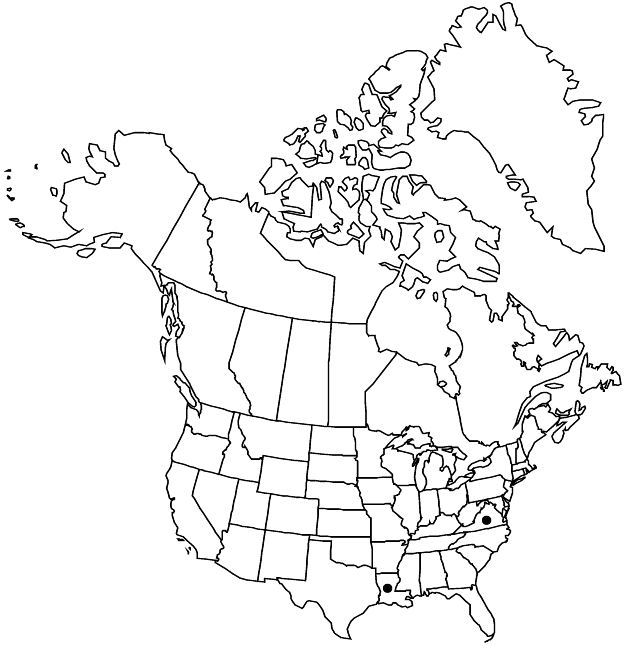Vines climbing to 10 m; tendrils mostly 3-branched; stems 5-angled, scabrous along ribs. Leaves: petiole 8–12 cm; blade light green, suborbiculate, shallowly 5–7-lobed, 15–20 × 13–20 cm, lobes suborbiculate to broadly ovate, oblong-ovate, oblong-triangular, or depressed-ovate, margins irregularly and coarsely dentate, apex rounded, surfaces glabrous. Staminate racemes 10–20-flowered, 10–15 cm; peduncles and pedicels erect to spreading. Flowers 4–5 cm diam.; hypanthium 5–10 mm, sepals equaling to slightly longer than tube; petals pale yellow, 20–25 mm, apex truncate to shallowly emarginate; stamens 3; filaments 4 mm. Pepos narrowly clavate, 10-angled, (10–)15–30(–45) × 5–8 cm. Seeds black, beaked, 10–12 × 6–8 mm, surfaces rugose, glabrous, beak margins obscurely winged. 2n = 26.
Phenology: Flowering Aug–Oct.
Habitat: Gardens, fields, trash heaps, cultivated in home gardens, abandoned plantings
Elevation: 10–200 m
Distribution

Introduced; La., Va., Asia (Pakistan), introduced also in West Indies, Central America, South America, elsewhere in Asia, Africa, Indian Ocean Islands, Pacific Islands, Australia.
Discussion
Selected References
None.